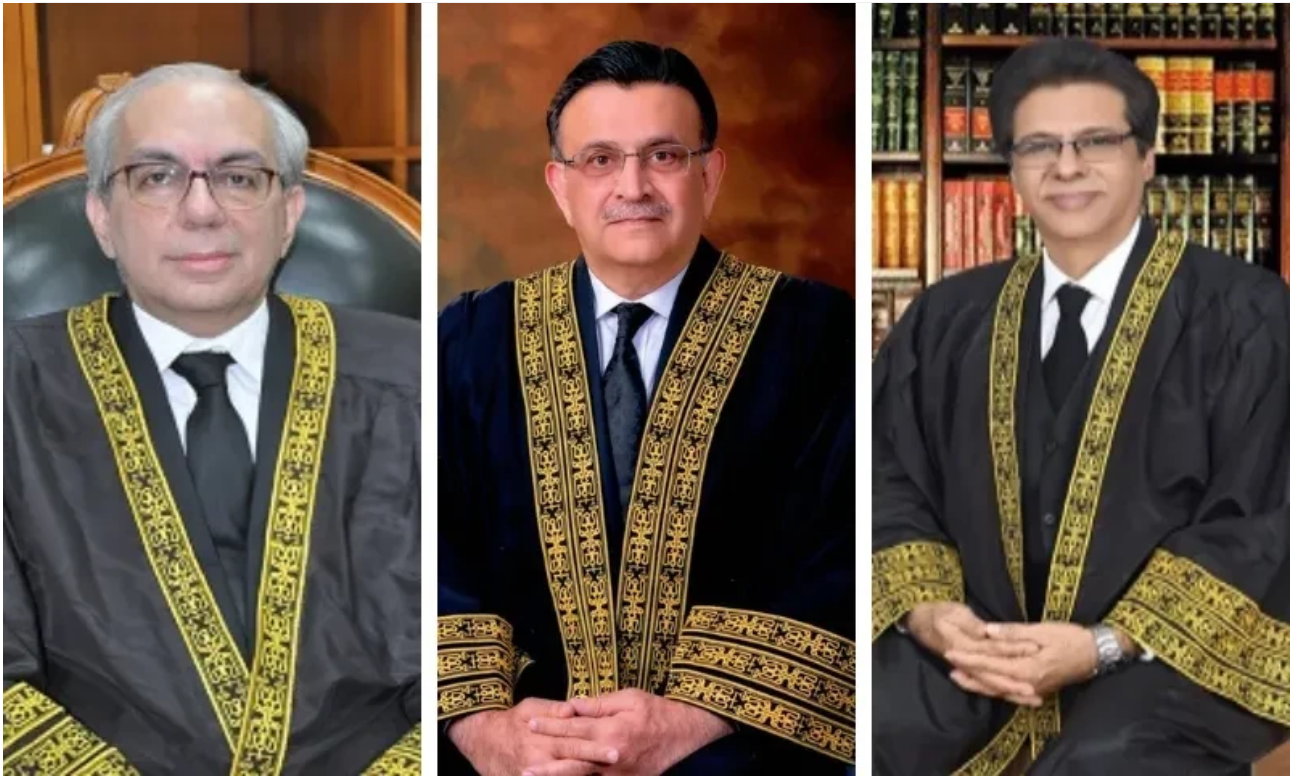The Supreme Court (SC), in a 3-2 verdict, ruled on Wednesday that elections in Khyber Pakhtunkhwa and Punjab — both of which have been under caretaker governments since the provincial assemblies were dissolved in January — should be held within 90 days.
“Parliamentary democracy is a salient feature of the Constitution. There can be no parliamentary democracy without Parliament or the provincial assemblies,” the ruling said. “And there can be neither Parliament nor provincial assemblies without the holding of general elections as envisaged, required and mandated by and under the Constitution and in accordance therewith”.
Key takeaways from the verdict
- President or governor must appoint date for election
- In Punjab, because governor did not dissolve assembly, president’s April 9 date is ‘constitutionally competent’
- After consultation with ECP, president will announce date for Punjab polls
- In KP, because governor acted on CM’s advice and dissolved assembly, he is bound to consult with ECP to announce date
- ECP must be ‘proactively’ available to president or governor for consultation on dates
The majority verdict, given by Chief Justice of Pakistan (CJP) Umar Ata Bandial, Justice Munib Akhtar and Justice Muhammad Ali Mazhar, was announced by the apex judge today.
Justice Jamal Khan Mandokhail and Justice Syed Mansoor Ali Shah — who were among the four judges who had written additional notes in the Feb 23 order — dissented with the ruling.
In the written verdict, a copy of which is available with Dawn.com, the top court held that in situations where a governor dissolved a provincial assembly, the constitutional responsibility of appointing a date for the election was to be discharged by the governor.
“In situations where the assembly is not dissolved by order of the governor, the constitutional responsibility of appointing a date for the general election that must follow is to be discharged by the president.”
The court stated that since elections after the dissolution of a provincial assembly were to be held within a stipulated period of time, the president or the governor “must discharge the constitutional responsibility of appointing a date for the said election swiftly and without any delay and within the shortest time possible”.
“The Election Commission must proactively be available to the president or the governor, and be prepared for such consultation as required for a date for the holding of general elections,” the order said.
It went on to say that regarding the dissolution of the Punjab Assembly, the constitutional responsibility for appointing a date for the general election was to be discharged by the president as the governor had refused to sign on the assembly dissolution summary.
But regarding the dissolution of the KP Assembly, the verdict continued, the constitutional responsibility for appointing a date for elections was to be discharged by the governor.
“It further follows that the order of the president dated Feb 20 is constitutionally competent and it applies to the Punjab Assembly, but the same is constitutionally invalid insofar as it applies to the KP Assembly and is therefore hereby set aside.
“It also follows that the governor of KP, in as much as he has not appointed a date for the holding of the general election to the assembly of that province is in breach of his constitutional responsibility,” the order highlighted.
It further said that in ordinary circumstances, the general election in Punjab ought to be held on April 9 — the date given by the president — but because there were delays in the announcement of the poll date, it might not be possible for the province to meet the 90-day deadline.
“The Election Commission is therefore directed to use its utmost efforts to immediately propose, keeping in mind ss. 57 and 58 of the 2017 Act, date to the president that is compliant with the deadline. After consultation with the ECP, the President shall announce a date for holding the general election to the Punjab Assembly.
“If such a course is not available, then the Election Commission shall in like manner propose a date for the holding of the poll that deviates to the barest minimum from the aforesaid deadline,” the order said.
Meanwhile, the SC directed the KP governor to appoint a date for elections in the province after consulting the ECP.
The top court also instructed the federal government to “ensure that the government of every province is carried on in accordance with the provisions of the Constitution”.
“The federal government is inter alia obligated on an immediate and urgent basis, to forthwith provide the Election Commission with all such facilities, personnel and security as it may require for the holding of the general elections,” it said.
Subsequently, the court disposed of the matter.
